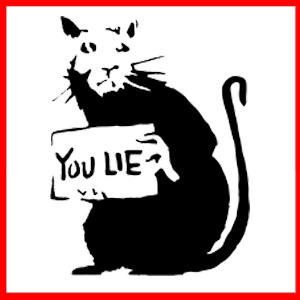 Hello and welcome to my SAT prep blog! Join my mailing list for subscriber-only content to help your score improve!
Hello and welcome to my SAT prep blog! Join my mailing list for subscriber-only content to help your score improve!
For years I sought the best SAT essay template that would always work, no matter what the prompt question was.
As a professional SAT tutor, I fantasized about a single, all-powerful essay method that could improve any student’s Writing score.
What’s more, I desperately needed this method to be quick and simple. The essay isn’t important enough to spend a lot of time prepping for, especially when there are other sections like Math, Reading, and Vocabulary that need attention.
I researched other tutors’ methods, trying to create my own technique from pieces of theirs, but the truth is that all our methods were pretty similar.
It took an epiphany in the middle of a lesson to finally realize exactly what I was looking for.
The result was the incredible strategy that YOU are now about to learn – one that’s guaranteed to increase your SAT score in a short time…
And best of all, it’s actually pretty fun, and you get to LIE to your essay grader.
Did you know that you’re allowed to lie on the SAT essay? That you’ll never, ever lose any points at all, even if the grader knows that you’re making up facts?
Get Exclusive SAT Prep Tips!
I want to send you more tips to help your SAT score, but I need your email address to stay in touch. Enter your email below so I can send you my reports on the SAT and other subscriber-only bonuses.
How could lying possibly help your SAT Essay score? Time to find out!
Why lie in your SAT essay template?
If I had to sum up a good SAT essay in one sentence, I would say something like this:
A good SAT Essay is organized, on-topic, and quickly uses specific examples as supporting evidence for a simple and straightforward stance on the prompt.
Perhaps the most important part of this definition is “uses specific examples as supporting evidence.”
Your supporting examples are the meat of your argument. Without them, there’s no reason for the grader to agree with you. Without proof, no argument can be convincing.
One problem: It’s easy to get stuck thinking up evidence
Honestly, it’s not easy to come up with evidence early in the morning when you’re stressed and tired.
I’ve seen so many students waste precious time brainstorming and not really getting anywhere. They think and think and end up paralyzed by analysis.
The other problem: It’s hard to come up with good evidence
On the other hand, I get plenty of students who don’t spend enough time finding good evidence and they turn in essays full of fluffy generalities like:
“In general, everyone would agree that creativity has contributed a great deal to our civilization.”
Ugh. Pardon me while I barf.
That’s the least-convincing, most un-supported, weakest-sounding crap, yet I hear this kind of stuff all the time in my lessons.
An effective SAT essay template must include some sort of secret recipe for always including powerful evidence… and that’s what my secret method is perfect for.
The solution: Incorporate lying into your SAT Essay template
template
The solution? Simply use flat-out lies to make your SAT essay more powerful and convincing – which leads directly to a higher Writing score.
I’ll explain exactly how to tell effective lies that you can use over and over again – just give me a second first to explain why you’re going to love this essay method if you stick with it.
Benefits to lying on the SAT essay:
- You’ll spend way less time brainstorming at the beginning
- Your evidence is always guaranteed to be on-topic
- The specific details of your evidence are customized to the prompt
- As a result your essay is incredibly convincing
- Your examples set your essay apart from all the others
- The lying strategy is fun and easy
- Less need for memorizing evidence before the day of the SAT
Where and how to lie in your template:
Your lies are going to for the supporting evidence and the meat of your body paragraphs.
The specific way you’re going to lie?
Your first body paragraph will discuss a fictional “Princeton University study” that deals with the prompt question you’ve been asked.
Your second body paragraph will explain an imaginary book by an invented author that tells a “before and after” story about a single character who is grappling with the same issues as the SAT essay prompt has raised.
Body Paragraph 1: Imaginary “Princeton University” research
This method deserves its own post, which I will write as soon as I can.
However, in a nutshell, you’re going to say something like the following:
In 1953, researchers at Princeton University conducted a study in which 1000 volunteers were broken down into groups of 500 each. The two groups performed [some task] under differing conditions: the first group [situation related to one side of the prompt] while the second group [situation related to the opposite side of the prompt].
The participants were then tracked for 50 years. At the end of the student, participants who [condition #1] were found to be far happier and more successful – on average, these 500 participants had higher salaries, larger, happier families, and a greater sense of personal fulfillment, as measured by self-reported studies.
Conversely, the other 500 participants who [condition #2] were found to be struggling with issues such as unemployment, drug addiction, and poverty.
Although the exact cause could not be determined with 100% certainty, the researchers theorized that [possible simple logical explanation for results]. 15 years later, a Harvard University professor conducted a similar study, with results that supported the original conclusion.
Can you see how powerful this argument is, even with the specific details removed?
The whole “prestigious university researchers getting scientific results” approach is very convincing.
I’ll come back and write more about how to use this trick in a new post.
For now let’s look at the second body paragraph of this liar’s template.
Body Paragraph 2: The Made-Up Novel
Alright – why stop lying now? Let’s just keep going.
Your second body paragraph for this essay template will be about a made-up book by a made-up author.
I usually follow the plot line of:
- Main character is being bad in some way [negative side of the prompt]
- This is directly causing negative results in his life – provide examples
- Some transforming event happens that changes his ways
- The character now acts in the [opposite side of the prompt]
- This directly causes positive results in his life – provide examples
It’s pretty self-explanatory, but I would still like to write a separate post on how to do this, which I will link to when I’ve finished it.
Why is this a great SAT essay template?
As we’ve already established, this SAT essay strategy produces guaranteed results, because it directly addresses both the common difficulties students have and the most important points that graders score you on.
It saves thinking time, while providing more specific, easy-to-use evidence than sitting and thinking about books and examples from history class.
Furthermore, this outlined structure is very convincing on a deep level, which means you will get a high score.
It’s so convincing because you have both the left-brain and the right-brain angle; the logical and the creative side; the scientific research combined with the keen author’s observations of human nature.
I like to lead with the scientific study to show “Hey, these logical thinkers have done research with real numbers and real science, and they agree with what I’m saying.”
Then I follow up with “Not only that, but this great author, who is known for his penetrating intuition into human nature, has been saying the same exact thing for years in his popular books.”
The grader is helplessly trapped in our amazingly-convincing web of made-up “facts” and has no choice but to give our essay a 10, 11, or even a perfect 12.
Add some strong SAT vocabulary and you’ll have the essay-grader eating out of your hand.
Not convinced that you’ll get away with lying?
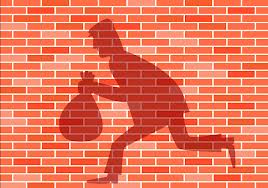 Are you still worried that this plan will backfire and you’ll lose points for telling lies?
Are you still worried that this plan will backfire and you’ll lose points for telling lies?
If that’s you, go back and reread why it’s ok to lie on the SAT essay.
I promise – you are absolutely fine to lie on the SAT essay without penalty.
Practice is what really makes this template work:
Here’s the other remedy for uncertainty and concern about actually applying this essay strategy on the day of the test: PRACTICE.
If you’re expecting to just read this article and suddenly get a 12, you’re totally mistaken.
Although it only takes a couple of practice attempts to get this method right, it still requires a few early attempts before it will feel natural.
You need to try it on your own a couple times to really see the pattern that you’ll use no matter what prompt you’re writing about.
How do you practice this essay template?
Simple – do it in a few steps. You can master this method in under two hours if you’re willing to put in the work.
First, pick a few prompts and brainstorm convincing, relevant studies and made-up novels that will support the prompt. Don’t worry about using a timer.
Second, practice writing out complete body paragraphs that get into specific details about the study and the book. Make sure to write it down – don’t just think about it. It’s not the same, once you actually start writing.
Make sure to include some cool SAT vocabulary in your essay – the intro is a great place, but so is the conclusion, or anywhere really!
Third, practice writing complete, timed practice essays. Now you’ll need to incorporate intro and conclusion paragraphs while still finishing on time.
After repeating this process just a few times, you’ll really get the hang of it.
Just ask me if you have any questions!
Want more tips? Order my pro tutor’s books on SAT Essay Strategy and Essay Evidence!
Further Reading:
Really, You Can Lie on the SAT Essay?!
Secrets of SAT Essay Prompts
How to Write a Great 5-Paragraph SAT Essay
How to Write (and Ace) the SAT Essay
The Top 10 Tips for the SAT Essay
Additional Resources:
Top 30 Examples to Use as SAT Essay Evidence (e-Book)
Write the Best SAT Essay of Your Life! (e-Book)
Conquer SAT Vocabulary (Video Course)
Wait – before you leave today, be sure to sign up to my SAT mailing list so I can send you my Urgent Report on SAT Reading and tons of other subscriber-only exclusive content to help you raise your SAT score!




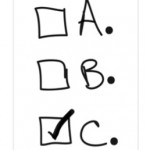


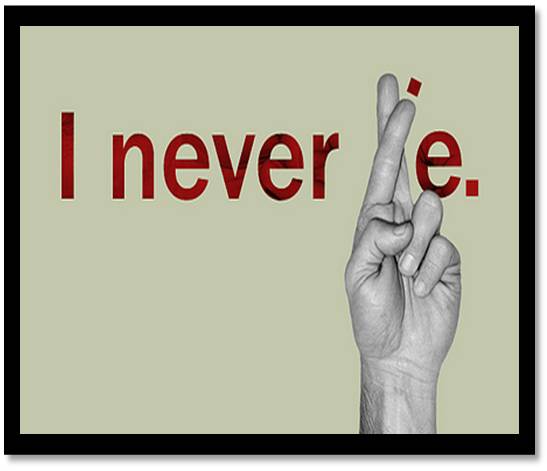

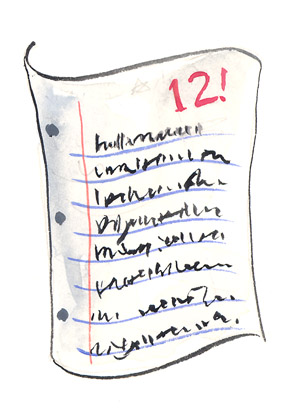








you re really smart .. i liked this ingenious, savvy method, but i have problems in enforcing it with essay prompts. could you plz show me a paradigm in using this method with an real essay prompts???
Hah, thanks! I’m really glad you liked it; it’s currently my favorite part of the SAT to teach.
I’d love to write some example essays so you can see more of what I mean. Thanks for the suggestion!
I probably won’t be able to write them for a little while, because tutoring is keeping me very, very busy, but I think your suggestion will help students around the world!
Thanks for stopping by my blog! Good luck with everything!
I’m a big fan of the Princeton Review, don’t get me wrong, but the way they explained the essay section had me on the verge of panic. I had no idea that I could give them (the test people) an essay like the one above. I’m better at creative writing than analytical writing, too, so now I’m almost excited to take the SAT tomorrow! I think your other tips are really helpful too– if only I’d discovered you sooner! Anyway, wish me luck; I’m extremely nervous– despite the great advice:^) Thanks, Christian!!!!
Hannah – your comment makes me really happy, and I think you totally get the spirit of this essay strategy. It really is FUN and actually a great way to warm your brain up early in the morning since the essay section is the first part.
Take a deep breath and let it out slowly – you’re going to do great :)
Hi again! I’ve finally received my SAT scores and, well, they weren’t exceptionally great (not bad for a sophomore, though, but not great). I really want to get your 30 Examples book, but do you have it in actual book form? I don’t have a tablet; I suppose I could use my computer? :/ Thank you, God bless, Hannah.
Hey Hannah! Thanks for returning!
You’re taking it really early as a sophomore. Don’t beat yourself up. Keep reading and learning vocabulary as I recommended in the free report you get when you sign up for the mailing list.
You can get the actual print copy books by searching on Amazon for “Christian Heath SAT Prep” and all 5 will come up. I believe they cost a little more because printing/shipping add up.
Or, you can just do the PDF route on your laptop. I don’t have a tablet and I feel fine!
:)
Hi, Can I use the exact same format and words in my essay? Or would that be cheating?
Harika, should be fine – consider this – they don’t grade you on “originality” – merely your ability to be convincing and persuasive with believable examples and a bit of analysis tied back to your central thesis.
When I got my first 12, I used certain words, phrases, and basic ideas that I had used on multiple essays beforehand!
I really appreciate your helpful method. But I still wonder what will happen if i lie something that the grader knows very well about. For example, if he is a professor at Princeton University while i make up a research about the it. Would he realize and give me punishment on lying??
Thanks.
Hah, that’s a valid fear :) But no, there is no penalty for lying or making up evidence under the current system, even if the grader knows you are lying. Isn’t that crazy? In my opinion, the main reason is that this is the only “human-graded” part of the entire standardized test. And it’s graded by different types of teachers and other folks. So what if a psychology professor could catch a lie that a band teacher wouldn’t notice? It wouldn’t be standardized! They just say, “who cares about the truth, it’s more about who can provide the most convincing, well-written argument.”
Thanks for stopping by!
Hi, Christian! I would like to tell you about my SAT essay experience and ask you opinion, but first, a word of thanks. This blog is great! I can’t imagine studying for the SAT without it.
Now to the SAT. In March I took it as a junior and got a score of 2060, with a 780 in writing (having answered all multiple-choice questions correctly). I’m pleased with the SAT results and won’t be taking it again, but the essay grade I got, an 8, seems underserved. Below is my essay and I would deeply appreciate it if you read it and gave me your thoughts.
The prompt: Should people who are more fortunate than others have more of a moral obligation to help those who are less fortunate?
“People who are affluent should have more of a moral obligation to help the needy than people who aren’t particularly wealthy. This only makes sense, after all, because the inherent nature of humans advocates philanthropy. As both author Joseph Carlisle and Harvard University research illustrate, the wealthy should feel it their moral duty to help the less fortunate.
First, author Joseph Carlisle advocates this philosophy in his best-selling book, “Your Money”. Carlisle writes: “For the sake of love and duty it is only natural that the rich volountarily share at least a small portion of their affluence. The celebrated ‘Golden Rule’ advocates this type of philanthropy. Although no one should be forced to by any means to give away his wealth, a rich person should act in accordance with innate human philosophy by helping the impoverished with his money.” Indeed, an obligation to help should accompany a large income.
Just as Carlisle attests to the obligation that the rich should have to help the poor, so does research. Harvard University conducted a study in 2009 that found that nearly seventy-percent of Americans thought that the rich should help the poor. But more importantly, that 2009 research indicated that nearly ninety-percent of Americans whose incomes exceeded fifty-thousand dollars per year were far more likely to donate money than those whose incomes were less than fifty-thousand dollars per year. In addition, the social and economic positions of those with incomes exceeding fifty-thousand dollars per year could more easily help the destitute than could those with incomes less than fifty-thousand dollars per year. A moral obligation, therefore, should accompany the incomes of the wealthy.
Thus, for both philosophical and statistical reasons, the rich should help the poor by pecuniary means. Of course, motive should be a factor in one’s philanthropy. It would be shameful for one to give money simply out of compulsion and pressure. Philanthropy should be accompanied by love, generosity, and kindness.”
Admittedly, there is at least one spelling error, my essay isn’t particularly interesting, and I did take a stance few test-takers would. But according to the College Board, essays aren’t graded on spelling mistakes, interest, or the controversy of the thesis so much as they are on coherency, cogency, and answering of the prompt, which, I felt, I did rather well. Moreover, I used transitions and a transition linking both example paragraphs. I ended on a more or less happy note, as you suggested in one of your other posts, and I used some relatively developed vocabulary with “inherent”, “pecuniary”, and “affluence”. And as moot as the essay prompt was, I felt I did answer it. (Honestly, how can ANYONE prove how humans SHOULD feel? That’s totally idiotic.) I followed your formula, obviously, and it worked well (especially for ease of writing and confidence in having a plan go!). I don’t know how anyone could ever write a convincing essay without making up examples, which is exactly what I did. Although I did deviate from the formula be using a best-selling author’s opinion in lieu of making up a novel, the plot of which would prove the thesis, I feel the design was still the same. What do you think about my essay? Does it deserve an 8 or better or worse? I personally feel like it demands a ten. So I can’t understand why the score was so average. To me, it seems as though only a bias against the position I took could lower the score to eight, especially when I compare my essay to the ‘grade 6’ essays provided in SAT training books. In advance, thanks for giving your opinion! :)
I am currently a junior, and I’ve been to two SAT classes so far. Both tutors mentioned that I should prepare history and literature examples from beforehand. I have already taken the March 2014 SAT and got a score of 9 when I tried this method. I don’t know if I’m doing it wrong, or if it was just really hard for me to come up with examples that fit the prompt well. I’m hoping that your unconventional method may work in my favor for June, but I’d just like to ask whether this method has been tried and proven to work…
Hey Safa, I think the best trick is to have both “real evidence” prepared ahead of time, plus a couple of handy lies (e.g. made-up research study from Princeton + a fake novel about a main character who changes his ways)
Try to build an objective, lawyer-like argument that uses specific examples (whether real or fake) as proof that one side of the prompt gets better results than the other side. Use a flowing, well-planned writing style and practice, and get feedback about how convincing you are.
The best cure for essay problems is feedback from people whose intelligence you respect. Show them your essays and ask for critiques! :)
For people who need a bunch of “real” examples you can consider the essay books in my online bookstore or Amazon.com.
Hey, did you ever end up writing the articles for the 2nd paragraph, or anything else about this strategy? This method is great.
Hey Zak, thank you so much! I would love to write the second part, but the past year has been a whirlwind of business growth in my SAT prep in Austin, so I haven’t had enough time for the blog. I’m hoping to revive it in time for the new SAT when they make the upcoming changes :)
Thanks for visiting and dropping a line – you’ve inspired me to make new big plans for this blog!
So I used this strategy for the June Sat; I wrote about a Brown university/Princeton study and a fake 19th century Swedish drama. I’ll let you know how it went!
Awesome, sounds like you get exactly how this strategy works. Come let us know what happens and what you learn from it!!
– C
If you check my comment and reply before oct 11, i would be the lucky one!
After reading through this “liar” example, I was just impressed and I practiced a lot with it. However, some people around me keep saying that the judges might notice the reliability of this example and my score would be lower. Im taking the october one in 3 days as a senior. WHOA. If my evidence and all arguments make sense, is that possible for me to get over score of 10?
Hi Kate, according to the current rules of the SAT, there is a huge loophole that allows us to lie, alter evidence, or make stories up; most people don’t know about it so they won’t believe it :D
It’s definitely possible to get a 10 or 12 if you make sense and use a ton of good examples and analysis. Read the level-6 essays they include in the Official Study Guide, that can help too!
you said u were gonna write more and explain both your body paragraphs and how to write them
i’m actually still waiting for your separate articles on each kindly do reply i would love to learn this trick….
thank you so much BTW.